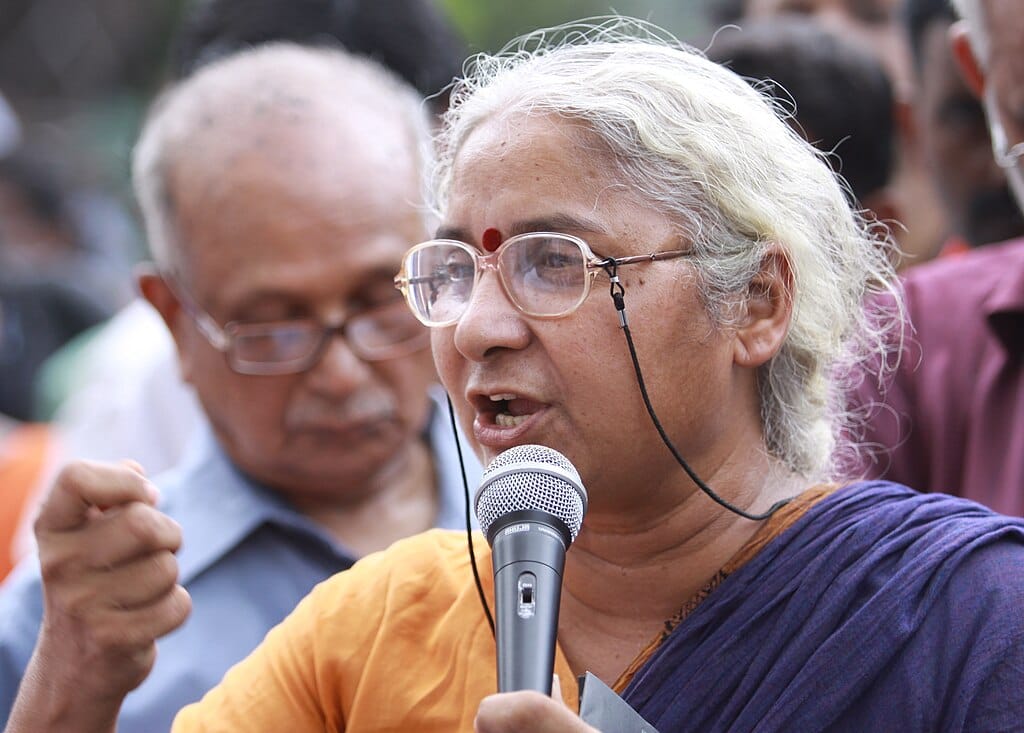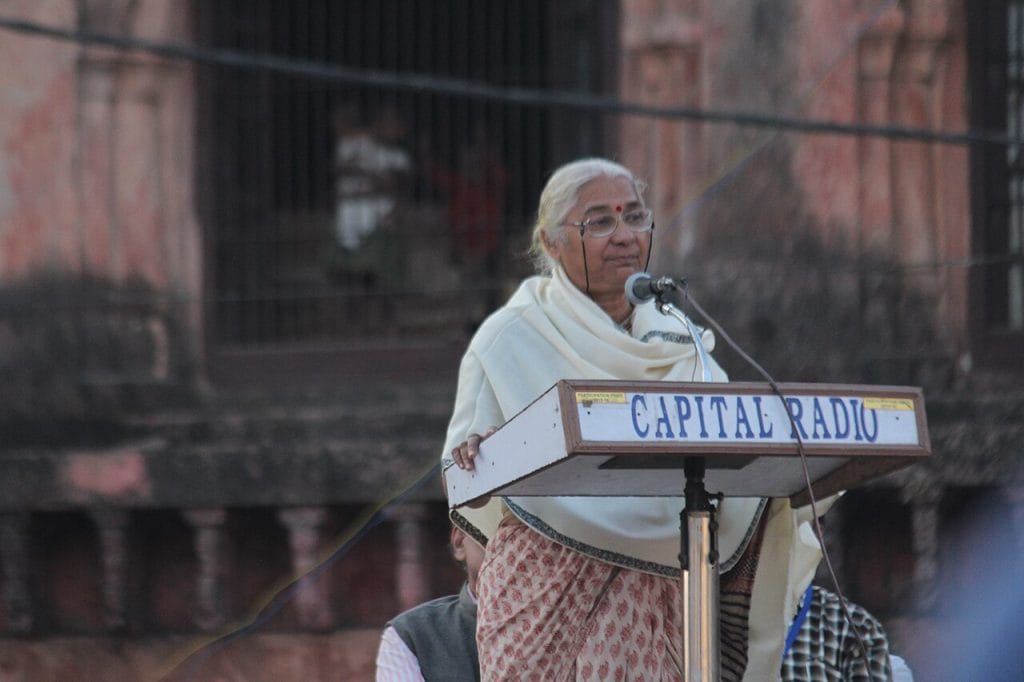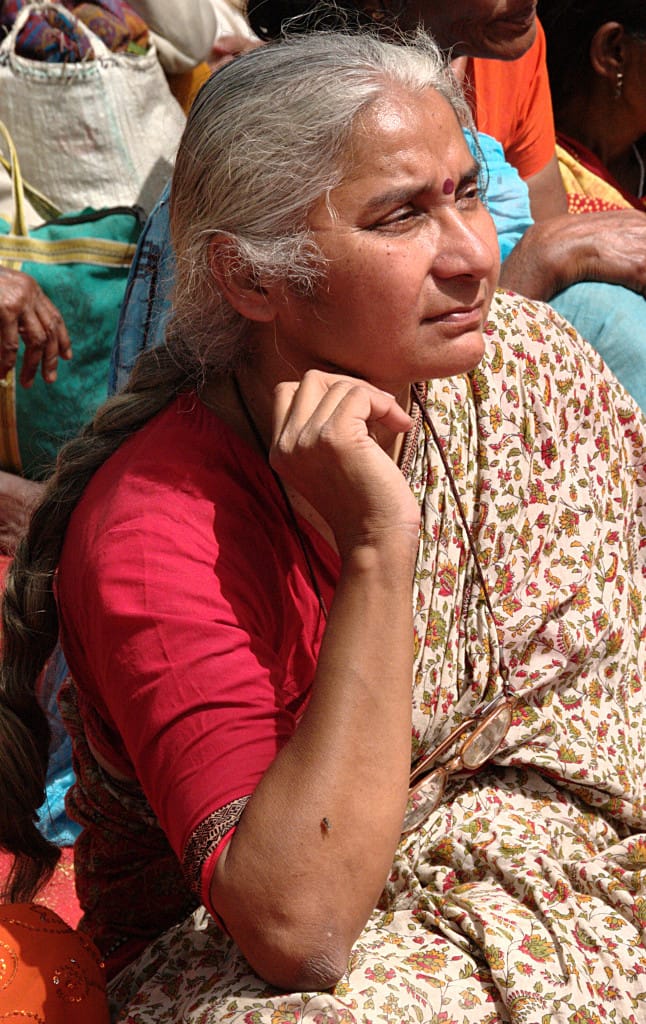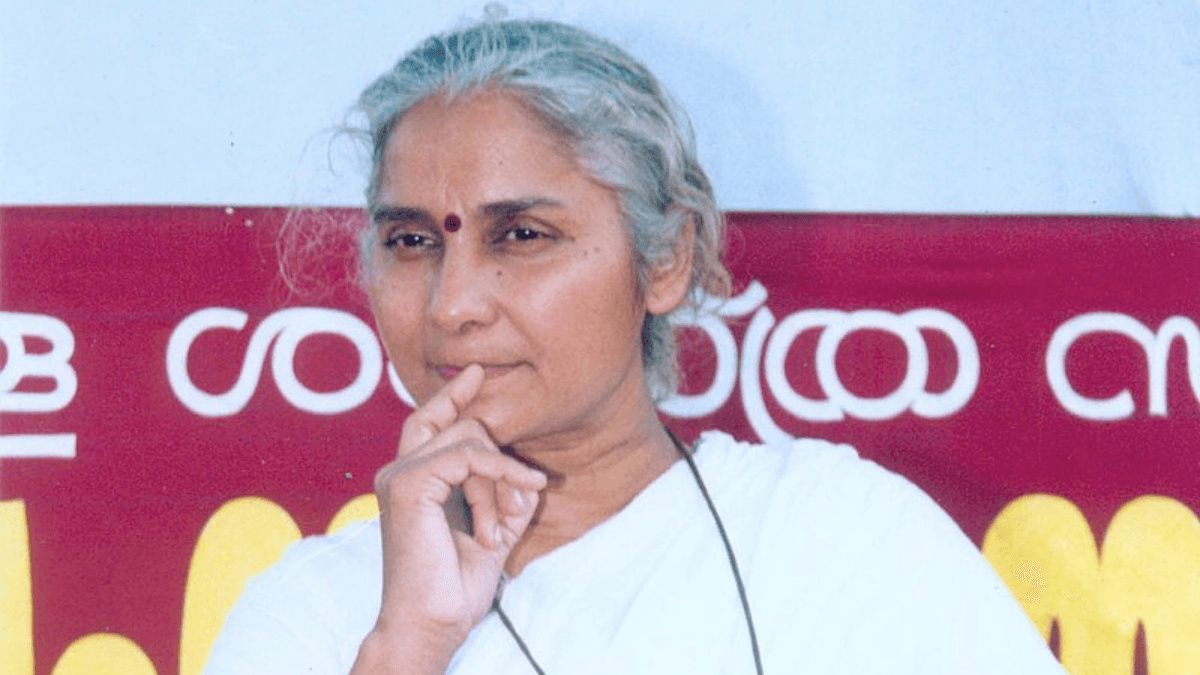On the morning of April 25, 2025, Medha Patkar was arrested from her residence in Delhi’s Nizamuddin area. The arrest, carried out by the Delhi Police, was linked to a defamation case dating back to the year 2000. The case was filed by V.K. Saxena, now the Lieutenant Governor of Delhi, who was then heading an Ahmedabad-based NGO called the Council for Civil Liberties.
The case revolved around allegations Patkar had made over two decades ago, accusing Saxena of being involved in hawala transactions and calling him a “coward.” At the time, Saxena’s organisation had supported the Sardar Sarovar Dam project in Gujarat—a project Patkar’s Narmada Bachao Andolan (NBA) was strongly opposing. Patkar had also claimed that Saxena secretly supported the NBA while publicly backing the dam, even alleging that a cheque he gave to the movement had bounced.
Over the years, legal battles continued. In 2024, Patkar was sentenced to five months in jail in one of the defamation cases but was granted bail. Earlier this month, the court sentenced her to one year’s probation. However, she was found to be violating the court’s order, and a non-bailable warrant (NBW) was issued on April 23.
Despite being on her way to court to furnish the probation bonds, Patkar was picked up by the police and brought to Saket Court. She requested release, stating that she intended to fulfil the bond conditions. The court eventually allowed her to go after she furnished the bonds and paid a ₹1 lakh fine.
Who is Medha Patkar?
The arrest of a 70-year-old activist raises a more profound question: who is Medha Patkar, and why has her work over the years led her into both national praise and legal trouble?

Medha Patkar founded the Narmada Bachao Andolan (NBA), a people’s movement formed to resist the construction of the Sardar Sarovar Dam and other dams along the Narmada River in western India. Her activism, spanning decades, has not only challenged huge and major infrastructure projects but has also highlighted how these “development” efforts often come at the expense of the poorest and most marginalised communities.
She has been a key organiser, strategist, and face of the Andolan. Her work centres around the belief that development should not displace people, destroy forests, or rob tribal communities of their livelihood and identity. Through marches, protests, fasts, and legal petitions, she has fought for a model of progress that values people and the community over profit.
The Narmada struggle: A people’s battle
The Sardar Sarovar Dam, part of the Narmada Valley Development Project, is one of the largest river development efforts in the world. But its human and environmental costs are equally massive. The project is set to submerge more than 37,000 hectares of farmland and forests, displacing over 320,000 villagers, mostly tribal communities.
One of the most remarkable wins was pushing the World Bank—a funder of the dam—to conduct an independent review of the project. In 1991, the Bank found the project lacking in environmental and resettlement safeguards, leading to the cancellation of the final ₹450 million loan. This was a rare moment of victory for grassroots resistance in India.
Medha Patkar began mobilising resistance in 1985. With NBA, she led peaceful marches, public protests, and legal interventions. But the cost of speaking truth to power was heavy—she was beaten by police, arrested multiple times, and almost died during a 22-day hunger strike in 1991. She did not give up and still launched more fasts in 1993 and 1994.
Despite the backlash, the NBA achieved significant wins. One of the most remarkable wins was pushing the World Bank—a funder of the dam—to conduct an independent review of the project. In 1991, the Bank found the project lacking in environmental and resettlement safeguards, leading to the cancellation of the final ₹450 million loan. This was a rare moment of victory for grassroots resistance in India.
A legacy of fighting for the forgotten
Medha Patkar’s work has not been limited to the Narmada Valley. Her activism has touched many areas across India where land, water, and forests are being taken from the people in the name of progress. From opposing dam construction in the Upper Veda and Lower Goin regions to stalling the controversial Maheshwar Dam, she has stood with Adivasi communities and poor villagers from time to time.

Her efforts have pushed the government to review environmental policies, improve resettlement plans, and even stop or delay several dam projects. While legal victories have been limited, the impact of her work is visible in the way people now question state narratives of “development.”
Patkar has also co-founded the National Alliance of People’s Movements, a network of activists working across India. This broader platform connects struggles against displacement, corporate takeovers, environmental destruction, and human rights violations.
Caste, class, and power
Patkar’s activism cannot be seen in isolation from the caste and class realities of India. The people displaced by the dams were largely Adivasis, Dalits, and poor farmers—groups already pushed to the margins of society. The movement questioned why the benefits of major infrastructure projects always flowed to the powerful, while the costs were borne by the vulnerable.
Her work offers a sharp lens to examine how caste, class, and power operate in the name of national development. While she herself is not Dalit or Adivasi, her long-standing solidarity with marginalised communities shows the role of upper-caste allies in amplifying unheard voices—without speaking over them.
The erasure of caste-based injustices, especially in conversations around development, continues. The recent arrest of Patkar, and the nature of the case, make it hard to ignore how legal tools are used to silence dissent, especially dissent that challenges the status quo.
Legal battles as tools of suppression?
Medha Patkar’s arrest, two decades after a speech and a press release, raises uncomfortable questions about how dissent is treated in India today.
While the courts found her statements defamatory, many see the legal response as excessive. A five-month sentence, followed by probation, and now an arrest over a delay in fulfilling bond conditions—these point to a pattern where civil society activists face constant legal pressure.
The use of defamation laws, old cases, and non-bailable warrants against peaceful protesters sets a worrying narrative.
At the same time, public figures accused of far graver crimes often roam freely. The difference in treatment suggests that activists like Patkar are being targeted for the very reason they are respected: their courage to speak up against injustice.
Beyond the headlines: Why Medha Patkar’s arrest matters
Medha Patkar’s arrest is not just about a legal case. It’s about what kind of democracy India wants to be. A country where people can question decisions, stand up for the displaced, and resist unjust policies—or a country where only those in power get to decide the terms of debate.

As Patkar said in court, she was not questioning the execution of the warrant. She simply asked to be released so she could fulfil the conditions. Her calm, lawful approach reflects the same dignity and patience that marked her protests. But her arrest, and the intense court scrutiny she faces, stand in contrast to the silence around those in power.
This moment is not just about one woman’s journey. It is about how we treat the voices that challenge us, especially those who speak for the voiceless.
Remembering what Medha Patkar stands for
Medha Patkar’s life is not just a biography—it is a blueprint for how ordinary people can get inside and challenge powerful systems. She has shown that resistance can be peaceful, protest can be principled, and activism can be intersectional.
As she walks in and out of courtrooms, her name may fade from the news cycle. But the questions she raised—about displacement, justice, development, and dignity—will continue to echo.
If we forget her legacy, what we lose is not just a memory but a reminder of what it means to care deeply for others—even when it’s inconvenient, even when it costs you everything.
About the author(s)
Anushka Bharadwaj is a journalism graduate from SCMC Pune. She is an intersectional feminist with a deep interest in gender, caste, politics, and mental health. When she’s not writing or reading, she’s usually found lost in poetry, dancing to her favourite songs, or discovering new music—always reflecting on the world through stories.






A good article on Medha Patkar. I wish you had also explored how a trained social worker ventures into activism, a rare trait which is becoming more rare by the day.
Pretty! This has been a really wonderful post. Many thanks for providing these details.